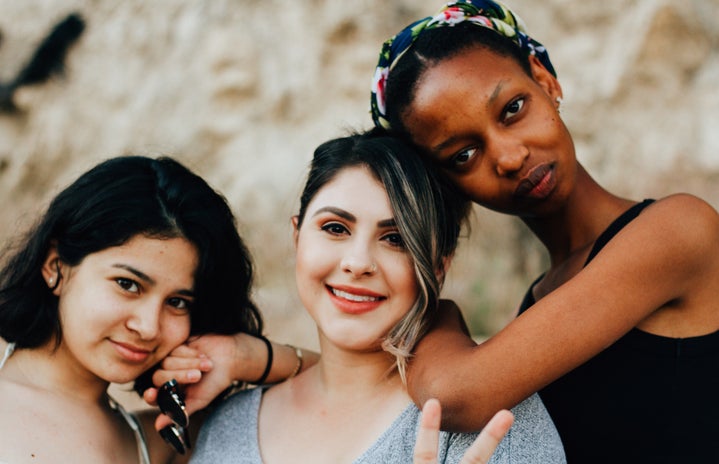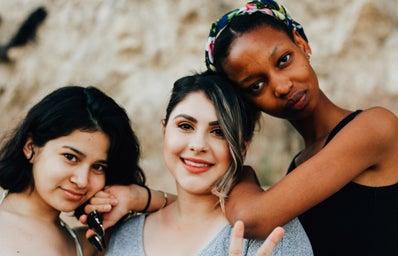We have all been guilty of stereotyping others at one point or another. Looking at a person or group of people and assuming a certain personality by categorizing them is something that has been part of our society for a long time. It somehow makes judging people easy if we have an ingrained social standard based on race and culture. I grew up as an Italian-American New Yorker in a small town. I definitely stood out by bringing Italian food for school lunches and the fact that my name was “different.” My non-southern accent also made me the subject of lots of “say that word again” jokes. As a child, I did not appreciate my cultural differences and understood them to be a negative part of myself. I wanted to change my Italian name and become someone else. When I got to middle school I began to swim on the same waves that my peers did. I wore the clothes that they wore to fit in, I ate school lunch and adopted their social “coolness.” I became someone else. By trying to fit in so badly I lost myself, my culture and pushed away any facet that made me different. It was not until I dove into college and moved to the city that I am confident to embrace my Italian-American New York culture. This is a story familiar to many minority groups in the U.S., especially during school and in the workplace.
Recent TikTok trends such as the “clean girl aesthetic” have raised cultural appropriation vs. appreciation debates. Led by white women, the trend describes the ultimate healthy and pretty girl with slicked-back hair, gold hoops and glossy lips. This look has been around much longer than the girls on Tiktok by Latina and Black women. “The problem is that there seems to be little credit or acknowledgment of the history behind this look, which erases the history of what others online call ‘a staple for Black and Latina women.’” Hailey Bieber came under fire when she demonstrated how to get “brownie glazed lips” using some of her Rhode products. Social media criticized her for being tone-deaf by stealing this lip combination from the Black and Latina beauty culture. POC communities have been made fun of for their stereotypical beauty trends until white influencers or celebrities try it and make it acceptable. “Kylie Jenner claimed she ‘started wigs,’ and Kim Kardashian referred to her Fulani braids ‘Bo Derek braids’”. Whitewashing ethnic cultures and Black-fishing are two serious problems prevalent in the United States. Though we have started the conversation about cultural appropriation, TikTok has not seemed to catch up yet.
The moral of the story: do not be ashamed of your culture! Ethnic artwork that may have hung in your grandparents’ home has probably been revamped in a college girl’s room. Cultural differences are beautiful and something to be celebrated. Culture is meant to be shared, but with credit and sensitivity. That lipliner your mom wore in the 90s is sure to come back in trend, so don’t stop wearing it. Do not wait for mainstream media to tell you what is beautiful. Your beauty is trendy all the time because it belongs to you. Never doubt if your culture’s food, fashion, music, or motifs are socially acceptable. The same people who laughed at your hair color in school are now showcasing their dyed locks on Instagram. Stay true to yourself: you won’t regret it.
XOXO,
Ari


